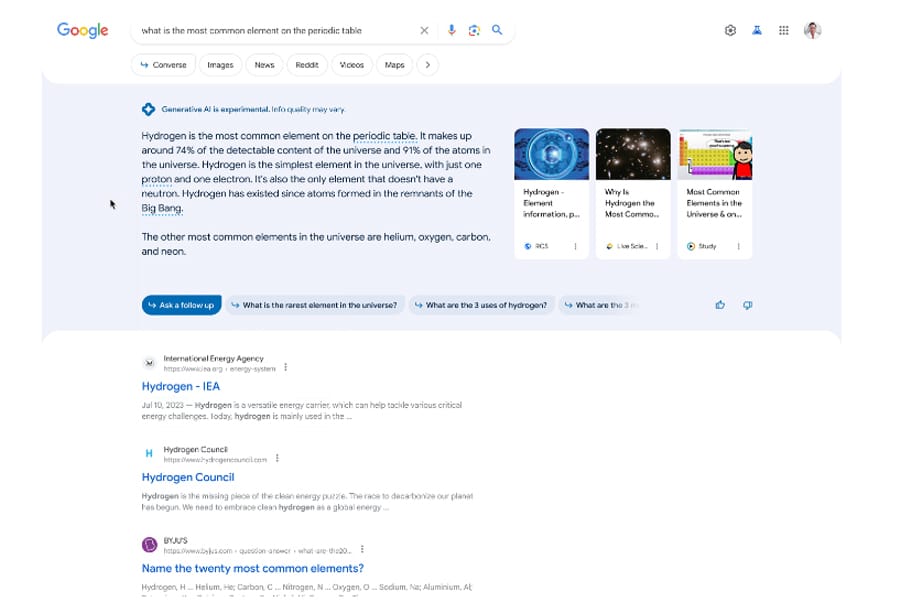How Google SGE is Changing SEO Forever

As 2024 unfolds, many industry professionals have been whispering about the death of SEO. While early SEO was focused on building backlinks and keyword stuffing webpages, the practice evolved along with the search engines to optimize for mobile viewing, page load speeds, link authority, content creation, and user experience.
It’s been almost a year since Google announced SGE (Search Generative Experience) and required users to opt-in to see the feature in action. This month Google has begun rolling out AI overviews as part of their main search for all users.
How It Works

For more info on how Google SGE works we went directly to the source - Google’s AI itself.
“Overall, Google SGE aims to leverage AI to make searching on Google more efficient and informative by providing summaries alongside traditional search results,” Gemini told us.
When you search for something, SGE might show you a short AI-generated overview alongside the usual web links. This overview aims to give you a quick understanding of the topic, including key points and helpful information.
Focus on user experience: SGE is designed to improve your search experience by providing all this at a glance, saving you clicks and time.
Springboard for further exploration: While the summaries are informative, they are meant to be a starting point.exclamation SGE still includes links to the underlying web pages so you can delve deeper into the topic and explore different perspectives.
Interactive exploration: SGE offers features like "ask a follow-up" which allows you to refine your search or explore related areas without having to retype your query.
What does this mean for SEO?
“These AI answers may push down both the organic and standard search ads. It may result in less, or potentially more, traffic to your site, depending on where the citations are referenced from and where Google places the ads. The likelihood is, these experiences will likely drive less overall traffic to sites than what the current Google Search results do,” Barry Schwartz from Search Engine Land wrote.
From what we’ve seen so far, SEO is simply evolving yet again. It’s essential to identify the algorithms that can get your page recommended and referenced by Google’s AI.
Since SGE prioritizes high-quality, comprehensive content, competition for ranking in the summaries (and thus on the top of the first page) will become fiercer. This will make it harder for smaller and newer websites to stand out.
Our recommendation: Creating valuable, informative content that addresses user search intent remains crucial. Regardless of your traffic source, once someone reaches your website the user experience needs to be clear, easy to navigate, mobile-friendly, and content-rich.
Consider diversifying your content for different consumption preferences: written blogs, videos, audio, photos, infographics, etc. This will reduce the bounce rate of visitors leaving your site to choose the AI results instead.
